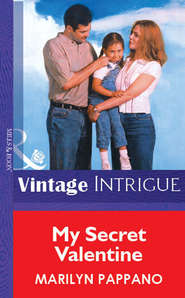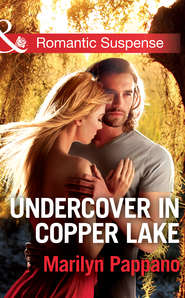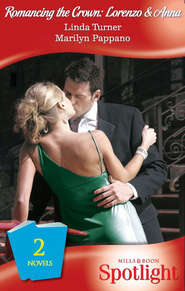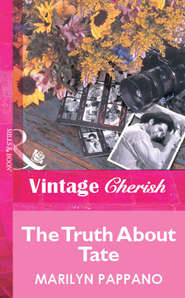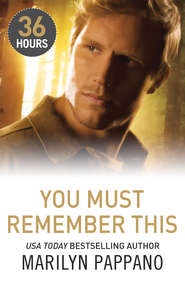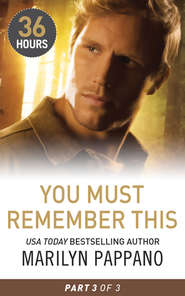По всем вопросам обращайтесь на: info@litportal.ru
(©) 2003-2025.
✖
Copper Lake Secrets
Автор
Год написания книги
2018
Настройки чтения
Размер шрифта
Высота строк
Поля
“I’ve heard of you, too, Mrs. Howard.” Then he gestured behind her. “Actually, more of the gardens.” It was true. Because of the time he and Glen had spent at Fair Winds, he’d always paid attention when the name had come up. He’d researched the gardens while completing his degree, had seen plans, photographs and praise lavished by guests at the house during the gardens’ prime in the 1800s.
“Humph. They haven’t existed in the fifty years I’ve lived here.”
“But they’re legendary.”
“That they are.” She tapped the card again. “But that doesn’t explain why you’re sitting outside my gate close to midnight.”
“No, it doesn’t.” He shrugged. “I’m between jobs, and I found myself in this area. I was curious.”
“Curiosity killed the cat, don’t you know?”
His smile was cool. “Do I look like a cat to you?”
She stared tight-lipped at him for a moment, then folded her fingers over the card. “Come back tomorrow. You can see more in the daylight.” Turning, she took four steps and disappeared into the shadows. The only sound of her passing was the crunch of footsteps on gravel that quickly faded away.
Mick whined again, and after a moment staring into the darkness, Jones faced him. “You’re just a big baby, aren’t you? Come on. Let’s go back to town. We’ve got work to do.”
When he opened the pickup door, the dog jumped into the driver’s seat and started to settle in, grumbling when Jones nudged him over the console to the passenger seat. Jones had picked up the shepherd mix at a job in Tennessee. One day he’d appeared at a stop sign, looking into every vehicle that came along before sinking back to the ground. He’d stayed there for days, growing thinner and more despondent, waiting for the owner who’d dumped him to return. Knowing what it was like to be alone and on your own and not sure you were up to the challenge, Jones had begun taking food and water to the stop sign.
On the eighth day, after he’d delivered the meal, Mick had eaten, then walked back to the house with him. They’d been together since.
He followed the hard-packed road to the highway, then turned south. Copper Lake was just a few miles away, but he and Glen had camped on Howard property for a month without going into town once.
Not that it was a bad little town. Once past the poorer neighborhoods on the north side, the town was neat, easy to navigate and excelled at small-town charm. It was home to more than a few magnificent historic houses that made him itch for a sketchpad and pencil.
If he couldn’t talk his way into Fair Winds, maybe he could drum up another job as an excuse for staying in the area awhile.
Most of the motels in town were on the lower end, with The Jasmine Bed-and-Breakfast at the high end. He’d picked one in the middle—clean, comfortable, high-speed wireless—and they didn’t object to Mick. He parked in front of his end room, let the dog do his business in the narrow strip of grass nearby, then they went inside and he booted up his laptop, calling up the file he’d put together in college and carried with him since.
Fair Winds Plantation.
The place where his life had changed. Where his brother’s life had ended. Where he intended to find the truth.
A horn blared, long and angry, as a logging truck blasted past, the winds buffeting Reece’s small SUV. Dawdling on a two-lane highway wasn’t the safest driving she’d ever done, but she couldn’t seem to help it. Every time she saw a mileage sign for Copper Lake, her foot just eased off the gas on its own.
Taking a deep breath, she loosened her fingers on the wheel and pushed the gas pedal harder. Once the speedometer reached the posted limit, she set the cruise control. There. The speed was out of her foot’s—or subconscious’s—control.
She’d spent last night in Atlanta, sleeping badly, tossing through one dark, malevolent dream after another. She was tired, her body hurt, and she had the king of bad headaches. If it were any farther to Copper Lake, she’d be physically ill before she got there.
And yet here she was doing her best to make the trip last.
As the road rounded a curve, a beautiful antebellum mansion appeared on the left, and Reece’s fingers tightened again. That was Calloway Plantation. According to the map she’d studied, the turn to Fair Winds was less than a half mile south of Calloway.
Sure enough, there it was, identified with plaques set discreetly into the brick columns on either side. She braked, turned onto the broad dirt road, drove a hundred feet and stopped.
Could she do this?
Evie thought so. Martine did, too. The only one with doubts was Reece herself. Hand trembling, she reached inside her shirt to lift a thin silver chain that Martine had given her. Dangling from it was a copper penny. Appropriate, she thought unsteadily, since she was outside Copper Lake and the taste of both blood and fear, according to people who knew, was coppery.
Evie’s calm, confident voice sounded in her head. If you ever want answers …
She did. Desperately.
If you need me, I’ll come.
And Martine: I’ll have everything you need.
“Except courage.” Reece’s voice was shaky. “But Grandfather’s dead. I’m not thirteen. I can handle this.”
She repeated the words in her head as she slowly got the car moving again. Tall pines grew dense on either side of the road, testament to the lucrative logging business that had taken the original Howard’s fortune and increased it a hundredfold. As far as she knew, Grandfather had never worked in logging or any other business. He’d managed his investments from his study on the first floor and done whatever caught his fancy. She vaguely remembered fishing poles and rifles and shovels, and the glare every time he’d looked at her …
Before she realized it, she’d reached the gate. It stood open in welcome. She drove through, and the hairs on her nape stood on end. Was it quieter inside the gate than out? Did the sun shine a little less brightly, chase away fewer shadows? If she rolled the windows down, would the air be a little thicker?
“Oh, for God’s sake. Valerie’s right. I am being melodramatic. It’s a house.” As it came into sight, she amended that. “A big, creepy, spooky house, but still just a house. I haven’t entered the first circle of hell.”
At least, she prayed she hadn’t.
Live oaks lined the drive, huge branches arching overhead to shade it. The house and its buildings—a guest cottage, the old farm manager’s office and a few storage sheds—sat at the rear edge of an expanse of manicured lawn. The brick of the pillars that marched across the front of the house had mellowed to a dusky rose, but there was no fading to the paint on the boards. The colors were crisp white and dark green, but still looked unwelcoming.
A fairly new pickup was parked near the cottage—silver, spotless, too high for a woman of Grandmother’s stature to climb into without help. Its tag was from Kentucky, and she wondered as she pulled in beside it if some stranger-to-her relative was visiting. The recent generations of Howards hadn’t been eager to stick around Copper Lake. Her father had left at twenty, his brother and most of their cousins soon after.
When she got out of the car, Reece was relieved to note that the sun was just as warm here as it’d been outside the gate and the air was no heavier than anywhere else in the humid South. It smelled fresh like pine and muddy like the Gullah River that ran a hundred feet on the other side of the gate.
She was closing the door when she felt eyes on her. Grandmother? Her housekeeper? The driver of the truck? Or the ghosts her father insisted inhabited Fair Winds?
Ghosts that might have been joined a few months ago by Grandfather’s malevolent spirit.
Evie’s voice again: Spirits generally won’t harm you.
Oh, man, she hoped that was true. But if Arthur Howard’s ghost lived in that house, she’d be sleeping with one eye open.
The gazes, it turned out, were more corporeal. Seated at a table on the patio fifty feet away, just to the left of the silent fountain, sat a frail, white-haired woman and a much younger, much darker, much … more … man, both of them watching her.
Reece stared. Grandmother had gotten old, was her first thought, which she immediately scoffed at. Willadene Howard had been frail-looking and white-haired for as long as she could remember, but the frailty part was deceiving. She’d always been strong, stern, unyielding, and in spite of her age—seventy-seven? no, seventy-eight—she certainly still was. She didn’t even show any surprise at Reece’s appearance out of the fifteen-year-old blue as she rose to her feet. When Reece got close enough that Grandmother didn’t have to raise her voice—Howard women never raised their voices—she announced, “You’re late.”
Maybe she didn’t recognize her, Reece thought. Maybe she was expecting someone else. She thought of the responses she could make: Hello, Grandmother. It’s me, Reece, the granddaughter you let Grandfather terrorize. Or Nice to see you, Grandmother. You ‘re looking well. Or Sorry I missed your birthday party, Grandmother, but I thought of you that day.
What came out was much simpler. “For what?”
“Your grandfather’s funeral was four and a half months ago.”
There was nothing Reece could say that wouldn’t sound callous, so she said nothing. She walked closer to the table, knowing Grandmother wouldn’t expect a hug, and sat on the marble rim of the fountain.
Grandmother turned her attention back to the man, who hadn’t shown any reaction so far. “This is my granddaughter, Clarice Howard, who pretends that she sprang full-grown into this world without the bother of parents or family.” With a dismissive sniff, she went on.
“Mr. Jones and I are discussing a restoration project we intend to undertake.”
Reece’s face warmed at the criticism, but she brushed it off as the man leaned forward, his hand extended. “Mr. Jones,” she greeted him.






